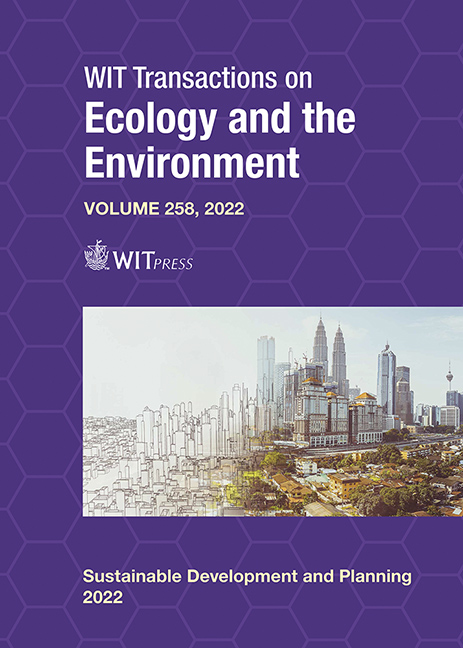DESIGN STRATEGIES TO REDUCE VULNERABILITIES IN THE EXTREMELY VULNERABLE COMMUNITIES OF CIUDAD JUÁREZ, MÉXICO
Price
Free (open access)
Transaction
Volume
258
Pages
12
Page Range
187 - 198
Published
2022
Paper DOI
10.2495/SDP220161
Copyright
Author(s)
XIMENA ARREOLA, EMANUELE GIORGI, MARIA ELENA DE LA TORRE
Abstract
Ciudad Juárez is a municipality in the Mexican state of Chihuahua which, with the U.S. city of El Paso, forms the second largest transborder agglomeration on the Mexico–U.S. border. A bloody war between cartels in the years 2007–2011 is among the main causes of important socio–environmental conflicts in the city. Although violence has declined sharply in recent years, these socio–environmental conflicts, aggravated by the current social, political, environmental and health crises, continue to afflict the population of Ciudad Juárez. Aware that civil associations are among the most important actors for the reduction of socio–environmental conflicts that arise in conditions of extreme vulnerability, the Vulnerable SocioEcotones research project has studied the needs for urban–architectural interventions highlighted by civil associations active in the vulnerable communities of Ciudad Juárez. Two different conditions were studied and compared: (1) urban–architectural interventions that civil associations are actually promoting; and (2) desires that civil associations would make to builders and designers in the hypothetical condition of being able to count with high economic resources. The results showed that the most requested interventions are those that allow individuals to appropriate public spaces to create a sense of belonging to the local community to which they belong. Furthermore, it emerges that the gap between implemented interventions and desired interventions remains wide, showing a structural powerlessness of the associations to be able to effectively affect reality as they could potentially do.
Keywords
ecotones, urban vulnerabilities, non-governmental organizations, urban design, social innovation





